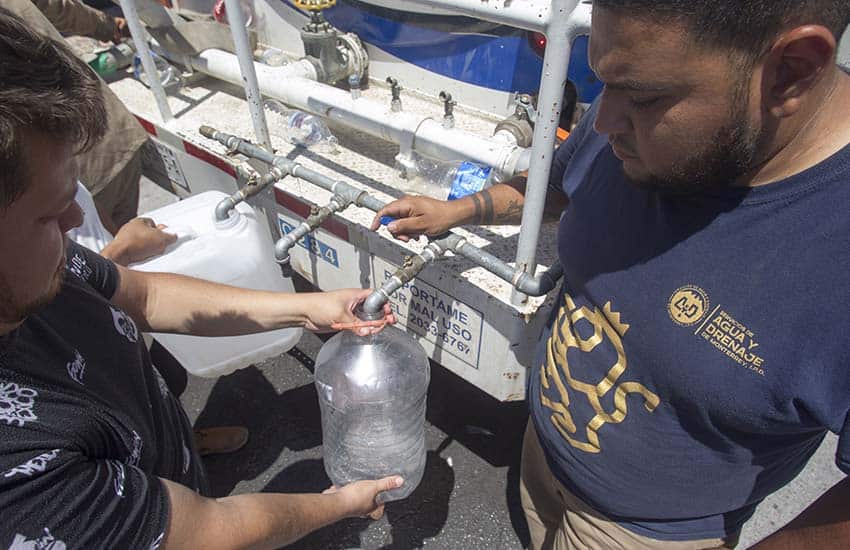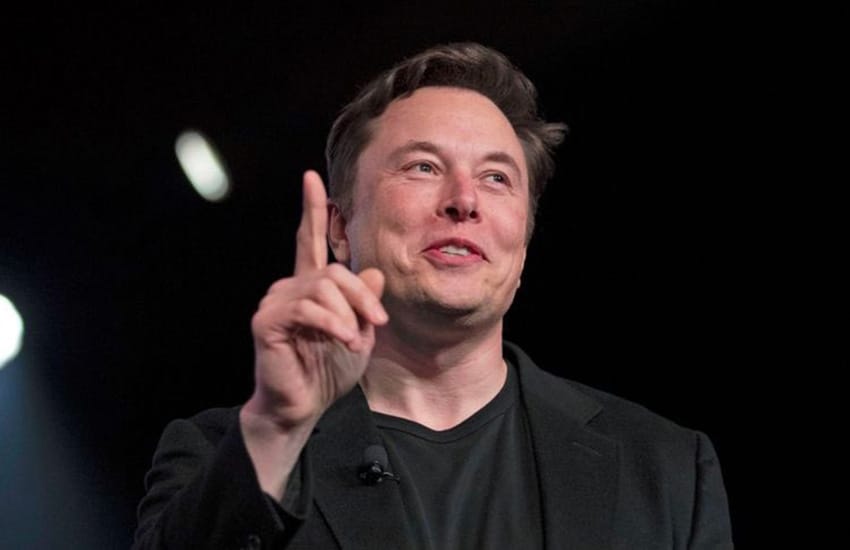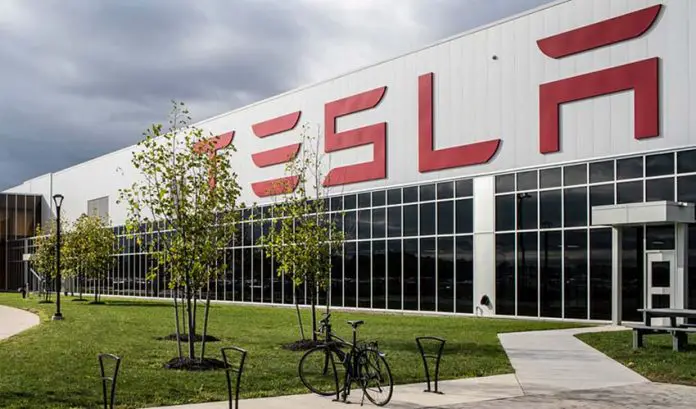President López Obrador on Monday said that southeastern Mexico was a possible location for a new Tesla plant because water is abundant in that part of the country.
The Austin-based electric vehicle manufacturer is believed to be considering Nuevo León or Hidalgo as the location for a new production facility in Mexico. Some Tesla suppliers already operate in the former state.

However, López Obrador told reporters at his regular news conference that Nuevo León wasn’t the best option for the company because “there’s no water” in the northern border state, Mexico’s leading destination for nearshoring investment in 2022.
Nuevo León Governor Samuel García — who met with Tesla CEO Elon Musk last October — “is doing a very good job, but there has to be national planning, and people’s needs have to be taken into account,” he said.
“Water is for the people, so we have to look for alternative options and not act irresponsibly,” López Obrador said.
“There are very favorable conditions in Nuevo León: they have a qualified workforce, they have experts, they’re close to the border, but what about the lack of water?”
Nuevo León endured a water crisis in 2022 that forced authorities to implement harsh restrictions in the metropolitan area of state capital Monterrey. Water pressure was reduced earlier this year as part of efforts to avoid having to limit supply again.
Asked about the possibility of Tesla setting up a plant near the Felipe Ángeles International Airport, López Obrador said that Hidalgo — which borders the México state municipality where the airport is located — “could be an option.”
However, “70% of the country’s water, it must be said, is in the southeast,” the president said, referring to a part of the country that includes his native Tabasco. The region is “another option” for Tesla, he agreed when a reporter put the proposition to him.
Foreign Affairs Minister Marcelo Ebrard said last week that Tesla would soon confirm that it would open a new plant in Mexico. He also said that Musk was planning to speak with López Obrador to discuss the company’s plans.
The president said Monday that the government was happy that foreign companies are investing in Mexico but stressed his concern about water supply.

“The only thing we want to talk about with the [Tesla] executives … is that we have to look after water for domestic consumption,” said López Obrador, whose government canceled a United States-funded brewery project in Mexicali, Baja California, after citizens rejected it in a referendum due to concerns it would threaten the local water supply.
He also said that the size of the plant and the number of workers it will require are issues to consider.
Although his enthusiasm for a Tesla plant in Nuevo León was lukewarm, the president acknowledged that a new aqueduct is under construction in the state and asserted that the project — which is expected to be completed in mid 2023 — “will guarantee that we won’t suffer from a lack of water, as happened last year.”
The aqueduct will transport water approximately 100 kilometers from the El Cuchillo dam in eastern Nuevo León to the metropolitan area of Monterrey, where reports have indicated Tesla could open its plant.
“… I’m going to speak with the [Tesla] executives … and see where we can guarantee water, electricity and all the services in order to not continue overexploiting aquifers,” López Obrador said.
In a report published Friday, the news agency Reuters said that Tesla would “depend on the federal government to tap in to Mexico’s strained energy supply and face difficulties securing substantial power from renewable sources” whether it chose to set up in Nuevo León or Hidalgo.
“That puts the Austin, Texas-based company — and any other major investor looking to build factories in Mexico — at the mercy of political forces mostly dictated by López Obrador,” the report said.

Still, a growing number of countries are choosing to shift operations to Mexico due to a range of factors, including its proximity to the United States, affordable labor costs and the North American free-trade pact known as the USMCA.
However, analysts cited by Reuters said that “Mexico’s capacity for a nearshoring boom has been held back by López Obrador, particularly his energy policies,” which are being challenged by the United States and Canada under USMCA.
The current federal government has implemented policies that favor the state-owned Federal Electricity Commission over private and foreign firms, angering the latter as well as governments of the countries in which they are based.
Juan Francisco Torres, an attorney at the Mexico City office of American-British law firm Hogan Lovells, told Reuters that Mexico “would be flying at 30,000 feet and having endless investments” if the country had a “profitable investment policy” and “energy efficiency.”
However, “that is not happening,” he said.
Gabriela Siller, director of economic analysis at Banco Base, said last month that the 3% GDP growth Mexico recorded in 2022 could have been higher if Mexico had taken greater advantage of the nearshoring phenomenon, while Economy Minister Raquel Buenrostro acknowledged late last year that resolution of the energy dispute was required to secure investments from hundreds of companies interested in relocating here.
Nevertheless, as things stand, Mexico is “among the top three countries with the most opportunities for foreign investment,” López Obrador said Monday.
With reports from Reforma, Milenio, Aristegui Noticias and Reuters
